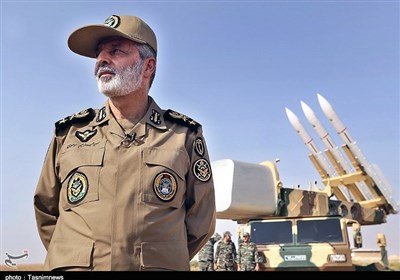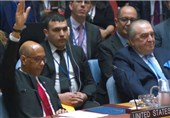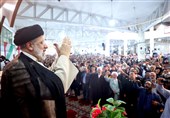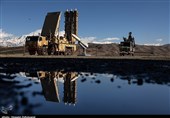Iran to Operate New Section of Arak Heavy Water Reactor in Weeks
TEHRAN (Tasnim) – The secondary part of Iran’s Arak heavy water reactor will become operational within the next few weeks, Head of the Atomic Energy Organization of Iran (AEOI) Ali Akbar Salehi said.
“We will make the secondary part of the Arak heavy water reactor facility operational as early as the next three weeks; the reactor consists of primary and secondary sections whereby an overwhelming part of (nuclear) processes is done in the latter,” Salehi told reporters after attending a parliamentary committee session in Tehran on Monday.
On the latest status of units 2 and 3 of the Bushehr Nuclear Power Plant, Salehi said, “It’s been two years since (the construction of) Bushehr’s reactors 2 and 3 started, and according to plans, the second reactor will become functional in 2025 and the third in 2027.”
Highlighting the technical measures by Tehran to reduce commitments under the 2015 nuclear deal, he said “the reduction of obligations would not constitute a violation of the JCPOA from a technical perspective and the possibility of returning to the pre-JCPOA conditions still exists.”
Before the deal was concluded, Iran enriched approximately 2,300 kilograms of enriched uranium every year, but the current figure stands at 1,700-1,800 kilograms per year, Press TV quoted Salehi as saying.
"So we are returning to the conditions that existed before the JCPOA in terms of uranium enrichment capacity," he explained.
“In the present situation, all (centrifuges) are modern-generation machines. Therefore, (the pace of) our research studies has not been slowed down or come to a halt,” Salehi emphasized.
"Within the next 2-3 weeks, we will unveil a chain of 30 IR6 (modern centrifuges)," he added.
Iran maintains that the new measures are not designed to harm the nuclear deal but to save the accord by creating a balance in the commitments.
Iran and the Group 5+1 (Russia, China, US, Britain, France, and Germany) on July 14, 2015, reached a conclusion over the text of the JCPOA.
The accord took effect in January 2016 and was supposed to terminate all nuclear-related sanctions against Iran all at once, but its implementation was hampered by the US policies and its eventual withdrawal from the deal.
On May 8, 2018, US President Donald Trump pulled his country out of the nuclear accord.
Following the US withdrawal, Iran and the remaining parties launched talks to save the deal.
However, the EU’s failure to ensure Iran’s economic interests forced Tehran to stop honoring certain commitments, including an unlimited rise in the stockpile of enriched uranium.






